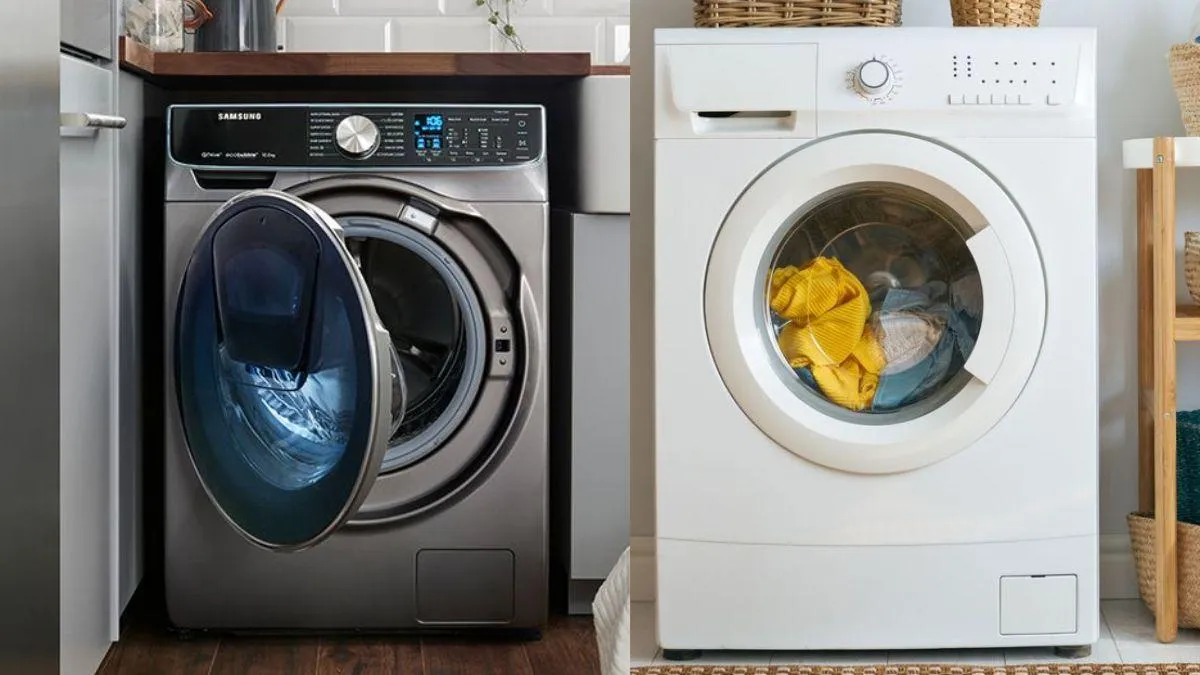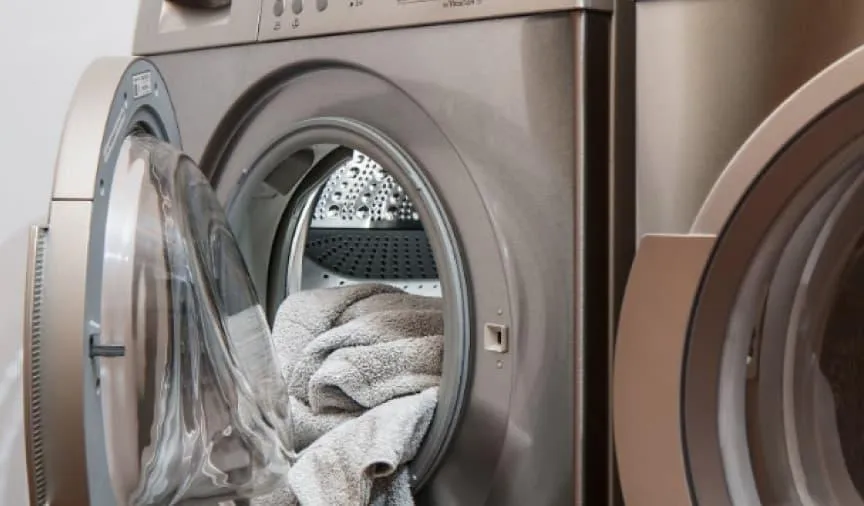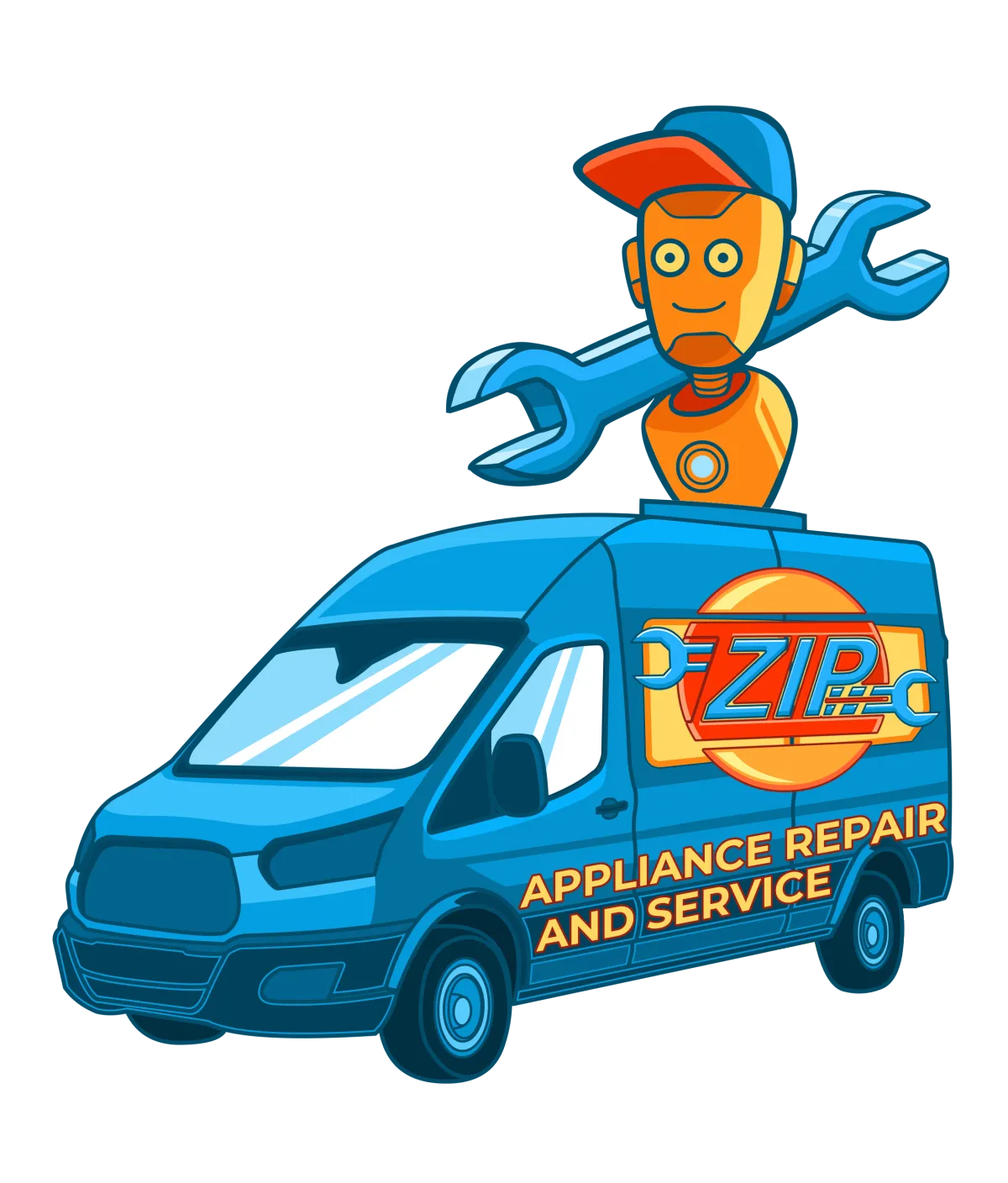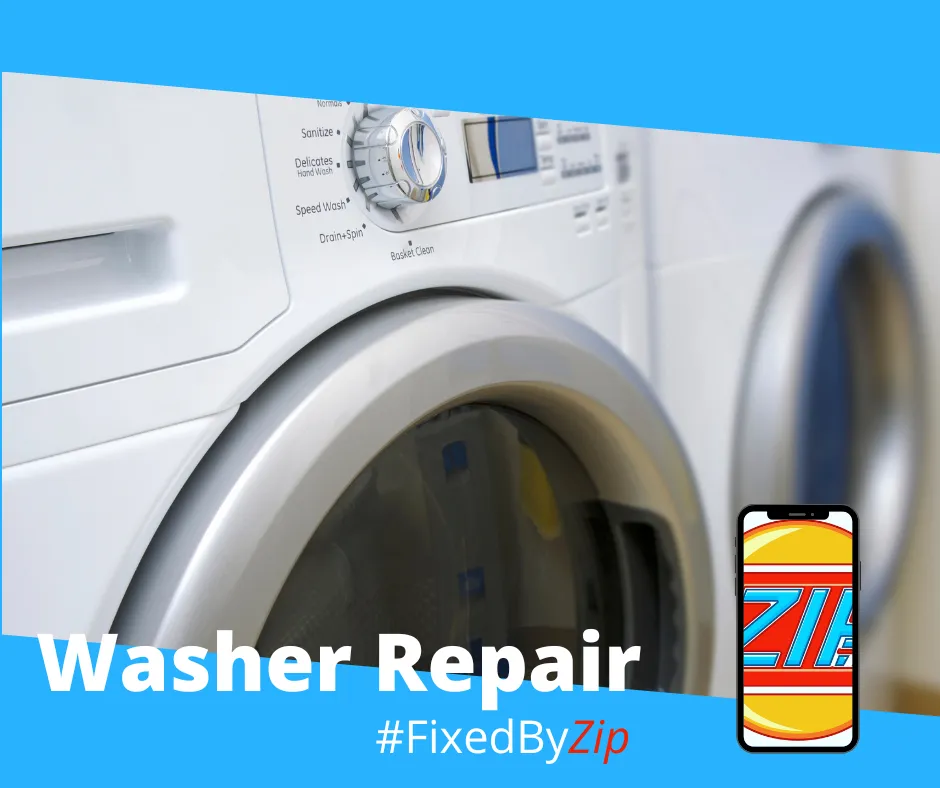THE FASTEST TOOLS IN TOWN
ZIP APPLIANCE REPAIR & SERVICE
Phone: (559) 272-4265
Phone: (559) 272-4265
Washer Repair in Clovis, CA - ZIP Appliance Repair
Expert Washer Repair Services - Quick, Reliable, and Local

Welcome to ZIP Appliance Repair, your leading provider of washer repair services in Clovis, CA. We understand the importance of having a fully functional washing machine in your home—whether you're dealing with mountains of family laundry or the weekly wash. Our expert technicians are equipped to handle a wide range of washer issues, ensuring that your appliance runs smoothly with minimal downtime. Trust us to provide efficient, reliable washer repair services tailored to meet your needs.
If your washer has been giving you problems, contact Zip Appliance Repair & Service at (559) 272-4265
Why Choose Us?
At ZIP Appliance Repair, we are committed to providing exceptional washer repair services to the Clovis community. Our team of certified technicians is skilled in handling a variety of brands, including market leaders like Samsung and LG. We pride ourselves on our rapid response times, ensuring that your washer issues are resolved quickly and effectively, minimizing any inconvenience to your daily routine. Our steadfast commitment to customer satisfaction and our ability to deliver reliable, high-quality repairs make us your best choice for washer maintenance and repair services in Clovis, CA.

Common Washer Problems We Fix
At ZIP Appliance Repair, we address a range of common washer issues that can disrupt your daily life. Here are some of the frequent problems we encounter and resolve:
Leaking Water: Whether it's a faulty hose or a seal issue, we quickly identify and fix leaks to prevent water damage and restore your washer's functionality.
Excessive Noise: Loud noises often indicate worn-out bearings or unbalanced drums. Our technicians can effectively quiet your machine.
Failure to Start: We troubleshoot power issues, faulty timers, or broken switches to get your washer running again.
Inadequate Draining: Slow or non-draining washers can be a hassle. We clean clogged filters and repair drain pumps efficiently.
Unusual Odors: We clean and maintain washer interiors to eliminate mold, mildew, and other causes of unpleasant smells.
Trust our skilled team to extend the life of your appliance with professional, thorough repairs.
Our Repair Services In Clovis, CA
At ZIP Appliance Repair, we provide comprehensive washer repair services designed to address every possible malfunction. Our process begins with a thorough diagnostic to accurately identify the problem. We then explain the issue and our proposed solution to you, ensuring transparency and understanding. Our repairs include replacing worn or faulty components with high-quality parts, adjusting settings for optimal performance, and conducting final tests to guarantee your washer operates as expected. Whether it’s a simple fix or a complex repair, our goal is to ensure your washing machine's longevity and efficiency.
Zip Appliance Repair & Service in Clovis, CA is the Best Team For the Job
Our expertise in washer repair extends to a wide range of brands, ensuring that no matter the make or model of your washing machine, ZIP Appliance Repair has you covered. We specialize in servicing popular brands such as Samsung and LG, known for their innovative and complex technologies. Additionally, we are skilled in repairing washers from Maytag, renowned for their high-end appliances. Our technicians stay updated with the latest repair techniques and technology, guaranteeing effective solutions for all your washer repair needs in Clovis, CA.

Repairing a refrigerator in your Clovis, CA home is a great idea. Don't just replace the refrigerator without knowing if it can be fixed. Call Zip Appliance Repair & Service today at (559) 272-4265 about a refrigerator repair.

Washer Repair In A Zip
If you need a washer repair call our Team at (559) 272-4265, or visit our online scheduling page to request service.
Appliance Repair

HAVE A QUESTION, CALL (559) 272-4265

How Long Should Appliances Last? Expert Guide for Repair or Replace Decisions in 2025
"Knowing how long appliances should last and when to repair or replace them can save you time, money, and stress—empowering you to make the smartest decisions for your home." - Appliance Boss
Introduction
Appliances are essential components of everyday life, from keeping our food fresh to making laundry day a breeze. However, understanding how long appliances should last is crucial for managing household budgets, minimizing unexpected costs, and ensuring the smooth running of your home. In 2025, the decision to repair or replace an appliance is more complicated than ever. With advancements in technology, sustainability considerations, and the constantly changing market, consumers are faced with a plethora of options. This guide will help you navigate the delicate balance between repairing and replacing household appliances, providing you with the insights needed to make the best decisions for your home.
Overview of Appliance Lifespan and Why It Matters in 2025
The lifespan of an appliance is no longer just a matter of how long it lasts but how efficiently it operates throughout its life. In 2025, the longevity of appliances is impacted by numerous factors, including technological innovations, energy efficiency standards, and overall build quality. As appliances become more sophisticated, it’s important to understand their expected lifespans and the role this plays in deciding when to repair or replace them.
Understanding appliance longevity can help avoid unnecessary expenses. If you can identify when an appliance is reaching the end of its useful life, you’ll have the opportunity to replace it with a more efficient, eco-friendly model, thus reducing long-term operational costs.

What Factors Impact How Long Appliances Last?
Several factors contribute to the lifespan of an appliance. These include:
Brand and Build Quality: Appliances from well-known brands typically last longer due to better materials and design.
Usage Patterns: Appliances that are used heavily, such as washing machines or refrigerators, may wear out faster.
Maintenance: Regular cleaning and upkeep can significantly extend the life of your appliances. Neglecting maintenance leads to quicker wear and tear.
Technology and Energy Efficiency: As appliances incorporate new technology, some may become obsolete or inefficient after a certain period.
The Importance of Making Informed Repair or Replacement Decisions
Making the right decision between repairing or replacing an appliance can save you both time and money. Repairing an appliance might seem like the less expensive option at first, but frequent repairs or ongoing inefficiencies may lead to higher costs in the long term. Replacing an appliance at the right time ensures that you are investing in a newer, more energy-efficient model that can lower your utility bills and improve your overall home comfort.
Understanding Appliance Lifespan
What is the Average Lifespan of Common Household Appliances?
Different appliances have varying lifespans based on their function and construction. Here are the typical ranges for some common household appliances:
Refrigerators: 10–20 years
Dishwashers: 9–12 years
Ovens and Ranges: 10–15 years
Washing Machines: 10–13 years
Dryers: 10–13 years
Water Heaters: 8–12 years
Microwaves: 5–10 years
Knowing these ranges will help you determine if your appliance is approaching the end of its life.
How Manufacturers’ Warranties Relate to Appliance Lifespan
Most appliances come with warranties that offer protection for a limited time, often covering defects or failures. Understanding these warranties can provide insight into how long the manufacturer expects the appliance to function without significant issues. Warranties often range from one year to ten years, depending on the product and its components.
Why Some Appliances Last Longer Than Others
Appliances made with superior materials, advanced technology, and efficient designs generally last longer. For instance, a high-end refrigerator with a more efficient compressor will likely outlast a budget model. Similarly, appliances from reputable brands often offer better performance and durability due to rigorous testing and higher-quality components.
Signs It’s Time to Repair vs Replace
How to Tell if Your Appliance is Worth Repairing
When deciding whether to repair an appliance, consider the following:
Age: If the appliance is relatively new and the repair is minor, it might be worth fixing.
Cost of Repair: If the repair cost is less than 50% of the replacement cost, repairing is often the better option.
Performance Issues: If an appliance is still working well but just needs a minor fix (like replacing a part), repair can extend its life.
Key Signs Your Appliance Needs to Be Replaced
Some signs indicate it’s time to replace rather than repair:
Frequent Breakdowns: If you’re constantly calling a repairman, replacement may be more cost-effective.
Rising Utility Bills: Inefficient appliances consume more energy, and replacing them can reduce costs.
Outdated Technology: Appliances that can’t keep up with modern technology or energy standards should be replaced.
Factors to Consider When Deciding: Age, Condition, Cost of Repair
When deciding to repair or replace, weigh the following:
Age: If an appliance is close to or beyond its expected lifespan, replacement is often a more cost-effective solution.
Condition: If the appliance still works well but needs minor repairs, a fix could extend its life.
Cost of Repair: Compare the repair cost to the cost of a new appliance. If the repair cost is close to or exceeds the replacement price, replacing is usually the better option.
How Long Should Major Household Appliances Last?
Refrigerators: Lifespan and Warning Signs of Failure
Refrigerators typically last between 10 and 20 years. Watch for warning signs like inconsistent temperatures, strange noises, or frequent defrosting cycles. If these issues persist, it may be time for a replacement.
Dishwashers: How Long Can You Expect Them to Run?
Dishwashers usually last between 9 and 12 years. Common problems include clogged spray arms or faulty water pumps. If repairs are frequent, replacing the unit may be more cost-effective.
Ovens and Ranges: When to Repair and When to Replace
Ovens and ranges last about 10–15 years. If they fail to heat properly or show signs of electrical issues, a professional repair may suffice. However, if they’re outdated and inefficient, replacing could offer better results.
Washing Machines and Dryers: Common Issues and Lifespan
Washing machines and dryers have a typical lifespan of 10–13 years. Common issues include drum malfunctions, overheating, or leaking water. If repairs become too costly or the machine is over a decade old, replacement is advisable.
Water Heaters: How Long Can You Go Before It’s Time for a New One?
Water heaters last 8–12 years, depending on maintenance. If your water heater is more than 10 years old and constantly needs repairs, it’s likely time to replace it.
Microwaves: Lifespan and Troubleshooting Tips
Microwaves last about 5–10 years. Issues like sparking or uneven heating often indicate it’s time for a new model.
The Role of Appliance Maintenance in Longevity
How Regular Maintenance Extends Appliance Lifespan
Proper maintenance can extend the lifespan of appliances by preventing issues before they arise. Regular cleaning, inspections, and part replacements help appliances run efficiently.
Best Practices for Maintaining Key Appliances
Refrigerators: Clean condenser coils, replace water filters, and check door seals.
Dishwashers: Run monthly cleaning cycles and inspect spray arms.
Water Heaters: Flush annually to prevent sediment buildup.
What Happens When You Neglect Appliance Maintenance?
Neglecting maintenance can lead to poor performance, higher energy costs, and more frequent breakdowns. Over time, this accelerates wear and tear, reducing your appliance’s lifespan.
Repairing Appliances: When It Makes Sense
What Repairs Are Cost-Effective and Worth Doing?
Some repairs, such as fixing a faulty dishwasher pump or replacing a refrigerator door seal, are often worthwhile. However, major issues, like a failing compressor in a fridge, might be better off replaced.
When to Repair an Appliance and When to Stop
If the cost of repair is more than 50% of the replacement price, consider replacing it. Additionally, if the appliance is nearing the end of its lifespan, frequent repairs may not be worth the money.
The Benefits of Repairing Over Replacing in Some Cases
Repairing an appliance can delay the need for replacement, saving you money. It also avoids the environmental cost of manufacturing and disposing of a new unit.
Replacing Appliances: What to Consider
The Hidden Costs of Replacing Appliances
When replacing an appliance, consider installation fees, disposal costs, and potential upgrades to ensure compatibility with your home.
How Replacing an Old Appliance Can Save Money in the Long Run
Newer appliances are more energy-efficient and come with modern features that save money on utility bills. Replacing an older appliance can lower maintenance costs as well.
How to Choose the Right Time to Replace an Appliance
Consider the appliance’s age, the cost of repairs, energy efficiency, and your long-term savings when deciding the right time to replace.
Cost Breakdown: Repair vs Replace
How Much Does It Cost to Repair Common Appliances?
Repairs vary by appliance. For example, refrigerator repairs typically cost between $200–$400, while washing machine repairs can cost $100–$350.
The Cost of Replacing Major Household Appliances
Replacing appliances can be costly. A new refrigerator, for instance, might cost anywhere from $600–$3,000, while a washing machine can range from $400–$1,500.
How to Calculate the Long-Term Savings from Replacing Rather Than Repairing
Factor in the cost of energy efficiency, maintenance, and repair frequency. Replacing an appliance with a newer, more efficient model could save hundreds annually on utility bills.
Eco-Friendly Considerations in Repairing vs Replacing
How Repairs Can Be More Eco-Friendly Than Replacing
Repairs help reduce waste and keep appliances running efficiently. Replacing unnecessarily can contribute to landfill waste and environmental degradation.
Why Replacing an Appliance May Help Reduce Your Environmental Impact
Newer appliances are designed with higher energy efficiency, reducing electricity consumption and greenhouse gas emissions over time.
Sustainable Options When Replacing Appliances
Look for energy-efficient models with Energy Star certification, and consider refurbished or energy-saving appliances to reduce your environmental footprint.
Conclusion
Making informed decisions about whether to repair or replace appliances can significantly impact your budget, convenience, and home efficiency. By understanding the typical lifespan of household appliances, the benefits of maintenance, and the long-term savings associated with replacement, you can make choices that benefit both your wallet and the environment. If you ever find yourself uncertain about whether to repair or replace your appliance, Zip Appliance Repair and Service is here to help. We offer expert guidance, affordable repairs, and reliable service to ensure your home runs smoothly. Visit our website at fresno.ziprepairservice.com or call us at (559) 272-4265 to schedule an appointment today.

© 2025 ZIP APPLIANCE REPAIR & SERVICE LLC














